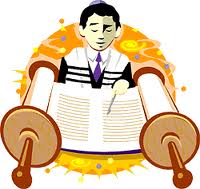Less positive were some of the more controversial pieces that have appeared within the last few weeks, such as this save-the-date video. As a rabbi and a mom, I have followed the discussions and news features on this one with interest, but in the end, I hope that for this young man, he will be able to remember his bar mitzvah not for all of the notoriety or controversy that has accompanied his save-the-date video, but for the meaningful ritual of welcome into adult Jewish life that the ceremony is meant to be.
And I found myself resonating with some of the messages that Alan Sufrin and Patrick Aleph call for in their ideas about rethinking bar and bat mitzvah. Sufrin talks about teaching our children to struggle with themselves and with their Judaism, and how not to see bar and bat mitzvah as an endpoint, but as the new beginning that it is meant to be. Aleph calls for a radical shift in the way that we educate our bar and bat mitzvah students and their families and prepare them for Jewish adulthood. He asks why we hold pre-teens to and educational standard that very few adults have achieved, and suggests that we need to re-examine b’nei mitzvah expectations and education.
I can’t stand the idea that the message for young adults today, and for their family members and guests is only about the party, such as in this montage of photographs from bar and bat mitzvah parties. And I find it scary that there is a market out there for bar and bat mitzvah simcha speeches in which you can hire a rabbi to ghost-write the speech for the parents or even the bar mitzvah boy or bat mitzvah girl’s d‘var torah.
I want my son and the bar and bat mitzvah students in our small congregation to know that bar and bat mitzvah is about preparation for a lifetime as a Jewish adult, that it’s not just an “event” that is all over by the next morning. I want my son to be part of building a Jewish community that is a place where most of these b’nei mitzvah will regularly lead worship, read Torah, and wear their tallitot after the big day is over. Not that this is all there is to becoming a Jewish adult, but these certainly are the responsibilities that a young man or woman is being prepared for. I hope that I am able to teach them that becoming a bar or bat mitzvah is about attaining a certain level of Jewish literacy, and spiritual development, and that this is an ongoing process of Jewish adulthood. I want them to learn and grow and question and look at the bigger picture of what they will be able to do within the context of their Jewish lives and our community. That is what it means to become a bar and bat mitzvah, and take the next step on your Jewish journey. And that is why as a rabbi and a mom, I continue to do the important work of helping young people and their families connect to bar and bat mitzvah as a time for learning, practice and celebration, within the context of a meaningful, relevant Jewish life.
(cross posted at Kol Isha, the blog of the Women's Rabbinic Network)




